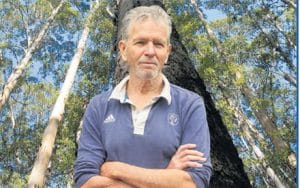Parliament’s Upper House in Western Australia is controlled by the Labor Party and could be excused for giving the tick to Mark McGowan’s wishes on the future of the state’s forests.
However, in the case of forestry, the integrity of government processes and decision-making requires more detailed examination. Two petitions to parliament have highlighted the lack of consultation, consideration of the impacts or options and failure to use the available science in deciding to close the native timber industry. It’s now up to those parliamentarians to review those decisions.
The industry and community could feel indignant at being deceived over the government’s forestry intentions. On March 29, 2019, the Premier signed an agreement with the Prime Minister to extend the regional forest agreement. This agreement committed to maintain a world-class reserve system for forest biodiversity, and for a continued yield of timber to provide for a stable timber industry.
During the 2021 election campaign no change of policy was announced or even suggested. Yet on September 8, 2021, the Premier tore up his agreement with the federal government, and more importantly abandoned support for the timber industry and its communities.

The Minister for Forestry continues to submit lame excuses for the government’s decision. (The Countryman June 2021). Last week McGowan came up with a new one – the yield of jarrah sawlogs was predicted to drop.
Where did this come from? Two Freedom of Information inquiries failed to provide any documents to support this claim. In any case it has been long known that the industry needed to adapt to new technology to process smaller logs, and he, as minister, should have been promoting the wood veneering technology that could have revolutionised the state’s industry. Instead, he has left the industry in a state of depression where no-one is likely invest due to the sovereign risk of dealing with his government on forestry.
The Upper House committee has now an opportunity to restore some credibility to the government by providing some realistic policy options for forestry. It is quite clear from science published that maintaining the industry at its current level is not a threat, and in fact could be beneficial in thinning the forests.
The current approach where the only timber provided will be sourced from mine clearing demonstrates the perversity of the government’s approach. One industry that destroys forests and is allowed to dig up increasing areas of forest, the other industry which has achieved international certification for sustainability can only pick up the waste from mining.
For there to be full use of the timber that can be made available there needs to be a commitment to supply a quantity. Based on the current Forest Plan the government not willing to specify a quantity. One wonders how it expects industry to plan and invest without any supply commitment. Imagine the mining industry investing if it didn’t obtain a clear right of access to land.
The second area for the Upper House Committee to consider is whether more timber could be made available from private forests. Currently the level of green regulation around harvesting timber on private land impedes commercial timber management by landowners. Now that all State forests are to be ‘protected’ perhaps restrictions on the use on private forests could be eased.
The third area for consideration is the promotion of long-term hardwood timber plantations. The government tried to establish a new hardwood plantation industry in the 2000s but got cold feet and withdrew financial support. The advent of a revenue stream from the carbon value could make this option more viable. To embark on such a program requires decades of bipartisan commitment, not a commodity that is easily found in forestry matters.
For the unloved timber industry, it will be of keen interest to see whether the Upper House committee is willing to take the scab of the forestry wound and try to provide some real policy for the government.
• Gavin Butcher, principal forester at Sandalwest, previously worked for the Forest Products Commission for 20 years.






